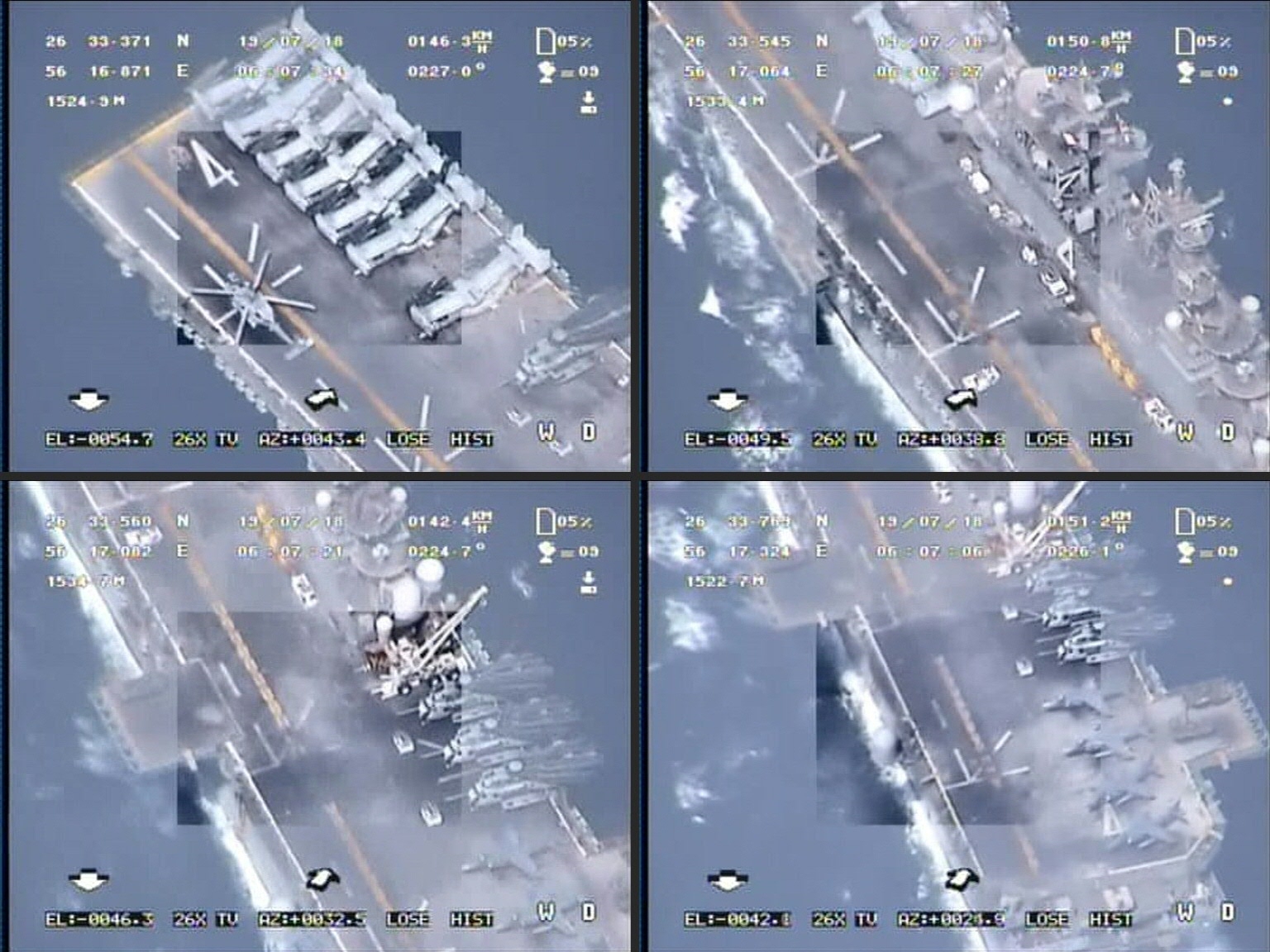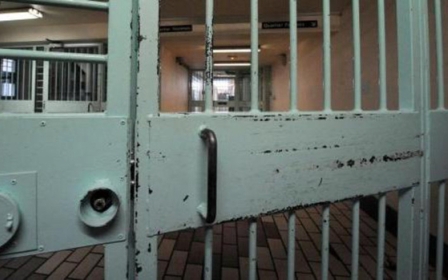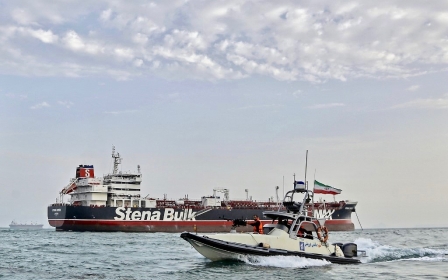Iranian press review: Top IRGC generals demand proof for US drone claims

Top IRGC commander: Trump lied about downing Iran’s drone
Iranian army commanders have once again rejected claims that the USS Boxer ship destroyed an Iranian drone, accusing US President Donald Trump of lying as reports emerged of another drone's destruction.
“Trump’s lie about downing our drone was such a big one that, at first, even we believed it,” the head of the Islamic Revolutionary Guard Corps' (IRGC) aerospace division, Amir Ali Hajizadeh, told reports on Sunday.
“We had to check all the units to see if we lost any drones. His lie was so huge that we could not believe that he'd tell such a big lie to media,” Hajizadeh added.
On 20 July, Fars new agency released video footage shot from a drone monitoring the USS Boxer. The IRGC claimed that the video proved the Iranian drone had returned safely and was not downed, but it did not explain how exactly the video confirmed this version of events.
New MEE newsletter: Jerusalem Dispatch
Sign up to get the latest insights and analysis on Israel-Palestine, alongside Turkey Unpacked and other MEE newsletters
Meanwhile, the US army said they may have shot down more than one Iranian drone.
On 23 July, CENTCOM Commander Gen. Kenneth McKenzie told CBS News that he was confident that the US military had brought down one drone, and they may have brought down a second one, adding that “there may have been more that we are not aware of”.
A day after McKenzie’s claim, Iranian Minister of Defence Amir Hatami asked Americans to show debris of the drones the US claims to have destroyed.
‘Egypt sending signals for Iran rapprochement’
Egypt is taking steps to restore its political relations with Iran amid the rising tensions between Iran and the US in the Persian Gulf and the Strait of Hormuz, according to Aftab daily.
The newspaper reported that a meeting took place between delegations from Iran and the UAE in early July over rising tensions in the Arabian Peninsula and the security situation in the Strait of Hormuz; and was followed by Cairo showing interest in distancing itself from Saudi Arabia and building closer ties with Iran.
“Egypt’s Suez Canal Authority has stressed that they will not stop Iranian ships crossing the canal,” Aftab wrote on 19 July.
The daily also added that “Iran was not mentioned in a final court ruling of a group found guilty of espionage in Egypt”. It cited this as evidence of a rapprochement and Cairo’s unwillingness to embrace Gulf Arab states' concerns over Tehran's ambitions in the region.
However, Aftab warned the Iranian government against the Egyptian state's intentions, saying it was not honest and that its only goal was to “improve its domestic legitimacy” and “create an anti-colonialist image for themselves by getting closer to Iran”.
After Iran’s 1979 revolution, when Egypt gave support to the Shah, relations between Tehran and Cairo soured and all diplomatic ties were suspended. During the Iran-Iraq war in the 1980s, Egypt’s support of Saddam Hussein caused further damage to political relations between the two countries.
Poverty, drugs and human trafficking in Iran’s poorest province
A report by Hamshahri daily has shed light on the southeastern province of Baluchistan, portraying the impoverished life of the Baluch minority. They live on the border with Afghanistan and struggle with sweeping poverty, drugs and unemployment.
Sistan and Baluchistan is Iran's most poverty-hit province and has the country's highest unemployment rates. According to a 2016 survey, 31.36 percent of the population lives under the poverty line.
The province, which is the second largest in Iran, is also the first stop for drug traffickers en route from Afghanistan to Europe. The problem is compounded by human traffickers operating in the province, transporting Afghani refugees through the border.
Most young residents of Sistan and Baluchistan interviewed by the daily were forced out of school due to poverty and the need to provide for their families.
“With what money can I go to school?” one of the interviewees asked. “School needs proper clothes and stationery. Moreover, who would help my mother pay rent if I was studying at school?”
Evin prison or ‘Hotel Evin’
In an investigative report, Shargh daily revealed that perpetrators of economic crimes were being held in the ‘VIP rooms’ of the infamous Evin Prison and offered luxurious accommodation akin to "hotel rooms" rather than the dire prison life other suspects face.
Evin prison is known for its high-security IRGC wards, where political prisoners are kept in harsh conditions in single cells. The prison is also where leftist prisoners were executed during the Shah era and after the 1979 revolution.
However, Shargh's report painted a far different picture. Through interviews with former and current inmates, the daily revealed that many prisoners accused of financial misconduct had rooms in a special ward, equipped with flat-screen TVs, expensive Persian carpets, private laundry machines, clean toilets, telephones and DVD players.
The report said the gadgets were bought in by well-known financial offenders, locked up in Evin for crimes such as embezzlement and disturbing the economic system.
Prisoners convicted of lower-level crimes usually serve long-term jail time, the report said. According to a former prisoner, the monthly expenses of some of the rooms in Evin prison could exceed over 45 million Iranian rials (about $10,700).
The rise of corruption in Iran in recent years has translated into a sharp increase in the number of convicts. These prisoners, who were jailed for taking advantage of corruption to increase their personal wealth outside of prison, have seemingly used the same ploys to enjoy a comfortable life inside Evin.
* Iranian press review is a digest of reports that are not independently verified as accurate by Middle East Eye.
Middle East Eye delivers independent and unrivalled coverage and analysis of the Middle East, North Africa and beyond. To learn more about republishing this content and the associated fees, please fill out this form. More about MEE can be found here.




